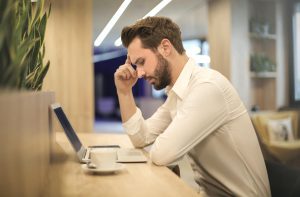How Can We Help?
Can Stress Impair the Effectiveness of the Covid-19 Vaccine?

A growing body of evidence shows that our psychological state at the time of, and the few weeks following, vaccination can influence how well our immune system responds to a new vaccine, including the production of antibodies to help fend off infection.
Based on research on the effectiveness of other vaccines, physical (older age, obesity) and mental factors play a role. While immunologists hold a wide range of opinions on what those factors might be, most agree that stress has an effect.
Dr. Janice Kiecolt-Glaser at Ohio State University College of Medicine found in the 1990’s that medical students given the 3 shot series required of hepatitis B vaccination responded quite differently. She found 25% of the students developed detectable levels of antibodies after the first injection, and their common factor was markedly lower levels of anxiety. It seems their laid back attitude gave them a quicker response. Dr. Kiecolt-Glaser also looked at a group of caregivers looking after a spouse with dementia. Four weeks after receiving an influenza vaccine, just 38% of the stressed caregivers showed a clinically significant response compared to 66% in a matched control group. Her group has also found stress can slow the body’s production of antibodies (taking longer to achieve protection) as well as shorten the length of time they last in the body (reducing how long our immunity lasts).
Sleep may also influence our response to a vaccine. In 2003, a group of young adults were kept awake 36 hours after getting a hepatitis A vaccine (equivalent to pulling an all-nighter before an exam). A month later, their antibody levels were about half the levels of the control group allowed for a normal night’s sleep.
While these effects on the immune response to COVID-19 vaccination have not yet been shown, there is every reason to think they will play a similar role. That said, the efficacy of the COVID19 vaccines is extremely high. However, stress, age, obesity, and sleep may reduce one’s optimum level of protection. So for now, prioritize sleep and exercise, use the skills and tools in your personal arsenal to reduce stress and anxiety, and engage with friends and family online — anything that might boost your sense of wellbeing over the next few months.
Sky Pittson, MD, April 28, 2021


